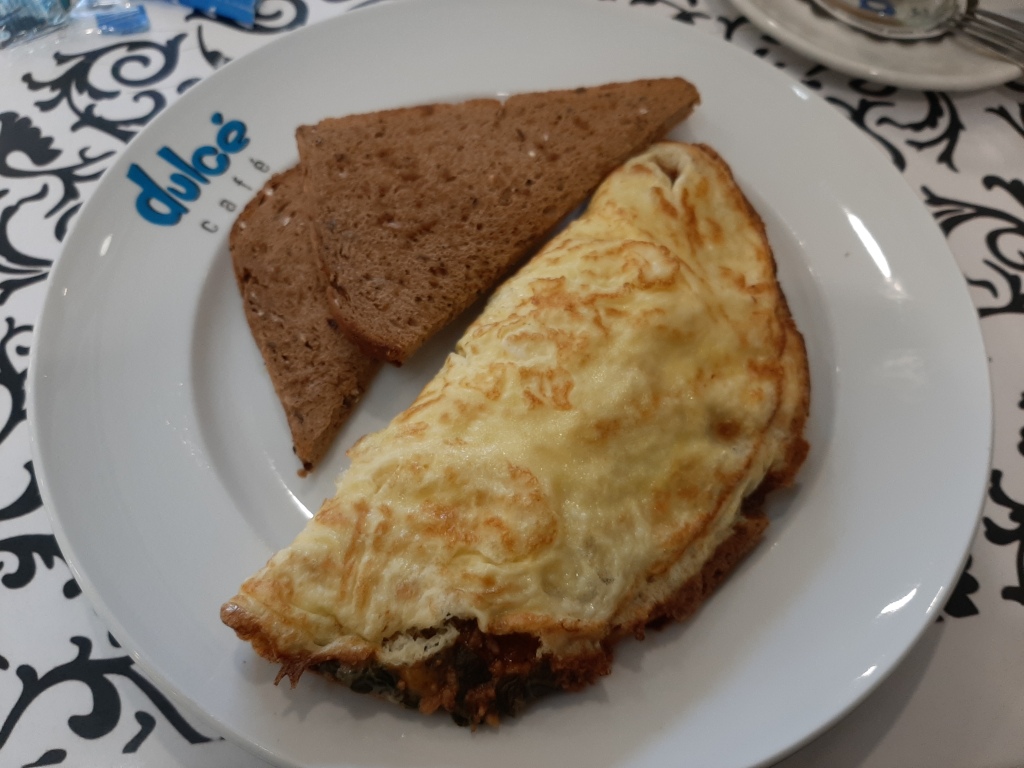I love breakfast. I love waking up in the morning and looking forward to a delicious filling spinach omelette, bowl of all bran cereal and a cup of coffee. Especially right after a workout (early morning workout – initially painful,but sooo worth it) – it makes me feel like I’ve accomplished a feat even before 7am!
Despite my own, and others’, preference for breakfast, as we may know, just because we prefer something doesn’t necessarily mean it’s the optimal thing to do.
So is it the most important meal? It depends.
The overwhelming majority of the internet out there does say the breakfast IS the most important meal of the day. I would say it’s mostly true. Some thrive with breakfast, and some simply don’t have any. However if you do have breakfast, there are ways to make it better than simply having some cereal.
Technically speaking – breakfast is not a necessity – it was marketed as being so by Kellogg’s wayyyy long ago in order to sell their cereal. Ever since then, breakfast has been touted as a must for living a productive life.
Well over here, we speak about facts. And the fact is breakfast is NOT a necessity.
Hold on, before we throw away our cereals and eggs and resort to steaks and rice, we need to address the benefit of having a meal in the morning vs not.
Breakfast can absolutely be a game changer for the rest of the day for you IF you ensure a satiating nutritious meal. More especially if you have not being doing so before. How you start your day does in fact impact the rest of your day.
Take a look at the following breakfast options:
OPTION 1 – Protein source + fibre source + nutrients (scrambled eggs on wholewheat toast; oatmeal with protein powder and blueberries; smoothies with yoghurt/cottage cheese,frozen fruit, spinach; low fat yoghurt with berries and handful of nuts).
OPTION 2 – High GI carbohydrates with minimal fibre + minimal protein + minimal nutrients (Bagel with butter and jam with orange juice; white bread with margarine, cornflakes with wholemilk and an apple).
The meals in option 1 will keep you full, ensure you get nutrients from early on in the day, and reduce your appetite for the rest of the day. Less snacking, less binging – because you feel so satiated. You also have to do less “catch up” with nutrients come lunch or dinner – eg Eating high protein and fibre in the morning gives more leeway to eat “less ideal” foods in the evening, when your willpower is lower – pastas, cakes – you may eat even less quantities of these as your appetite is lower.
Meals from option 2 will keep you full for only a few hours, and then at around 10 oclock, you may find yourself downing those cookies in the office or at home. Thoughout the day you may find yourself eating snacks trying to satisfy your inherent lack of satiety and craving of nutrients. Especially if your subsequent meals are devoid in satiating and nutritious food.
So if you do have breakfast, it will serve you to eat a filling one to set the day, and as you eat in such a way, you are able to achieve your health goals.
But that’s not the end of the story.
Intermittent fasting is a popular eating style (not diet) in which commonly breakfast is skipped – and those who do are also able to reach their health goals. Those who do have managed to fit their eating style to match their goals.
Maybe they didn’t feel hungry in the morning, or maybe they eat a large dinner which sustains their satiety into the next day. Or maybe they prefer larger and fewer meals and choose to do so. In not so many words, they found that having breakfast was not suitable or maybe even sustainable to their own life.
So which is it? To eat breakfast or not to?
That’s why the answer to this question is: it depends.
If you prefer having more numerous meals, you like the feeling of satiety to start of the day, you love breakfast meals, you like to get your protein and fibre requirements out of the way early in the day, and its sustainable for you – have breakfast.
If you prefer having fewer meals, have less of an appetite in the morning and can work throughout the morning without a meal WITHOUT having to overcompensate with overeating or over snacking throughout the day, as well as it being sustainable, you can skip breakfast.
Thanks for reading, subscribe below for more updates 🙂

Leave a comment